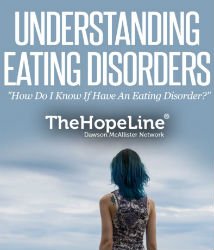Family Influence on Eating Disorders in NZ Youth
The role of family dynamics is pivotal in understanding the complexities surrounding youth eating disorders in New Zealand. Research indicates that family relationships and communication styles significantly influence the onset and recovery processes of these disorders. In a country where the prevalence of eating disorders among young people is rising, it is essential to explore how familial interactions can either exacerbate or alleviate these challenges.
Youth eating disorders not only impact the individuals affected but also reverberate through family systems, affecting overall well-being. By investigating the nuances of family communication and support structures, we can better understand their critical influence on recovery outcomes. For more insights into the latest trends and statistics regarding eating disorders in New Zealand, visit this resource.
Understanding Family Dynamics in New Zealand Youth
Family dynamics play a crucial role in shaping the mental and emotional well-being of youth, particularly when it comes to the development and recovery from eating disorders. In New Zealand, where family structures can vary widely—from traditional nuclear families to extended whānau—understanding these dynamics is essential. Families serve as the primary social unit where values, beliefs, and behaviors are instilled.
Research indicates that the quality of family relationships significantly affects youth eating disorders. For instance, supportive family environments that promote open communication can foster resilience among young people, helping them navigate the complex pressures related to body image and self-esteem. Conversely, families that exhibit high levels of conflict or poor communication may inadvertently contribute to the onset of disordered eating behaviors. Addressing these dynamics involves recognizing unhealthy patterns, such as perfectionism or criticism, that may perpetuate eating disorders.
To support youth in New Zealand, families should focus on creating a nurturing atmosphere where emotional expression is encouraged. This can be achieved through regular family meetings, where everyone has the opportunity to share their thoughts and feelings. Such practices can help break down barriers and facilitate understanding, reducing the risk of eating disorders.
For more resources on supporting youth with eating disorders, visit Eating Disorders New Zealand.
Communication Styles and Their Impact
Effective communication within families is paramount in influencing the mental health of young individuals. In the context of youth eating disorders, communication styles can either mitigate or exacerbate the situation. Families that engage in open, non-judgmental conversations are more likely to promote healthy behaviors and emotional well-being.
In New Zealand, cultural considerations also affect communication styles. For Māori families, for example, incorporating cultural values, such as whanaungatanga (kinship) and manaakitanga (hospitality), into discussions about eating and body image can lead to more effective outcomes. When families actively listen and validate the feelings of their youth, it builds trust and encourages adolescents to share their struggles with eating disorders.
On the other hand, families who employ critical or dismissive language can isolate youth, making them less likely to seek help. It’s essential for families to practice empathetic listening and to approach conversations about food and body image with sensitivity. Training sessions or workshops on effective communication can be beneficial for families, ensuring they are equipped to support their youth appropriately.
For more insights and support, refer to Eating Disorders New Zealand.
The Influence of Parental Attitudes
Parental attitudes towards food, body image, and mental health can significantly influence youth eating disorders. In New Zealand, where societal pressures regarding appearance are prevalent, parents often unintentionally pass on their beliefs and behaviors to their children. Research has shown that parents who exhibit disordered eating behaviors or who place undue emphasis on weight can contribute to similar patterns in their children.
Parents should be mindful of how their comments about food and body image may affect their youth. Encouraging a healthy relationship with food, where eating is seen as a source of nourishment rather than a means to an end, is vital. Involving youth in meal preparation and emphasizing the importance of balanced nutrition can foster a positive attitude towards food.
Moreover, parents can model healthy behaviors by discussing their own struggles with body image and emphasizing the importance of self-acceptance. Creating a family culture that celebrates diversity in body shapes and sizes can also contribute to reducing the stigma around eating disorders. For further resources on fostering healthy family attitudes, check out Eating Disorders New Zealand.
The Role of Sibling Relationships
Sibling relationships can significantly impact the emotional landscape of youth, particularly concerning eating disorders. In New Zealand, siblings often serve as both confidants and competitors. Positive sibling relationships can provide a buffer against the pressures of societal expectations regarding body image, while negative dynamics can exacerbate feelings of inadequacy and contribute to disordered eating.
Encouraging open communication between siblings is essential. Parents can facilitate this by promoting joint activities that foster teamwork and mutual support. For instance, engaging in sports or creative projects together can help strengthen bonds and build a supportive environment. Furthermore, parents should encourage siblings to look out for one another, especially in recognizing signs of eating disorders.
Educational programs that focus on building healthy sibling relationships can also be beneficial. These programs can teach siblings how to communicate effectively and supportively, reducing the likelihood of fostering an environment conducive to eating disorders. For more information on how to promote healthy sibling dynamics, visit Eating Disorders New Zealand.
Cultural Factors Influencing Family Dynamics
New Zealand’s diverse cultural landscape plays a significant role in family dynamics and their impact on youth eating disorders. Different cultural backgrounds come with varying beliefs and practices concerning food, body image, and mental health. For example, Māori culture emphasizes holistic well-being, which includes physical, mental, and spiritual health. Understanding these cultural nuances is essential for families to address disordered eating effectively.
Families from different cultural backgrounds may have unique challenges, such as navigating cultural expectations around body image. For instance, immigrant families might struggle with the clash between traditional cultural values and Western ideals of beauty. It is crucial for families to engage in discussions that honor their cultural heritage while adapting to the New Zealand context.
Encouraging cultural pride and identity can serve as a protective factor against eating disorders. Families should celebrate their cultural practices, such as traditional cooking and communal meals, to foster a sense of belonging and acceptance. For support and resources tailored to diverse cultural needs, explore Eating Disorders New Zealand.
Interventions and Family Therapy
Family-based interventions and therapy have shown promising results in treating youth eating disorders. In New Zealand, various therapeutic approaches focus on improving family dynamics and communication styles. Family therapy can help address underlying issues that may contribute to disordered eating behaviors, such as conflict, anxiety, or unrealistic expectations.
The Maudsley Approach, a well-established family-based treatment model, emphasizes the importance of involving the family in the recovery process. This model encourages families to work together to support their youth in regaining a healthy relationship with food. By fostering cooperation and understanding, families can help their youth navigate the complexities of eating disorders more effectively.
Additionally, community resources, such as local support groups or workshops, can provide families with the tools they need to support their youth. These programs often offer guidance on how to approach discussions about eating disorders and strategies for promoting healthy behaviors at home. For more information on available resources, visit Eating Disorders New Zealand.
Building a Supportive Community
Creating a supportive community is essential for preventing and addressing youth eating disorders in New Zealand. Families play a pivotal role in fostering connections with schools, healthcare providers, and local organizations. Collaborative efforts can help create a network of support for youth facing eating disorders while also promoting awareness and education within the community.
Schools can implement programs focused on mental health and body positivity, encouraging students to engage in discussions around eating disorders and self-esteem. Parents can advocate for such programs by participating in school boards or community meetings. By working together, families and schools can create environments where youth feel safe to express their struggles.
Community organizations can also provide valuable resources, such as workshops, counseling, and support groups for both youth and families. Engaging in these resources can empower families to better understand eating disorders and how to approach them. For more information on community support and resources available in New Zealand, explore Eating Disorders New Zealand.
FAQs
What are the common types of eating disorders among youth in New Zealand?
In New Zealand, the most common eating disorders among youth include anorexia nervosa, bulimia nervosa, and binge eating disorder. Each of these disorders presents unique challenges and can significantly impact a young person’s physical and mental health.
How do family dynamics affect the development of eating disorders in youth?
Family dynamics play a crucial role in the development of eating disorders in youth. Factors such as communication styles, parenting practices, and family relationships can either contribute to or help mitigate the risk of developing an eating disorder. For instance, high levels of criticism or unrealistic expectations within a family can lead to low self-esteem and unhealthy body image perceptions in young individuals.
What role does communication style within a family play in recovery from eating disorders?
Effective communication within a family is essential for recovery from eating disorders. Open and supportive communication can foster an environment where youth feel safe to express their feelings and struggles. This support can enhance their motivation to seek help and adhere to treatment plans, ultimately aiding in their recovery journey.
Are there specific family interventions that can help youth with eating disorders?
Yes, family-based interventions, such as Family-Based Treatment (FBT), have shown effectiveness in treating youth with eating disorders. These approaches involve the family in the treatment process, empowering them to support their loved one in developing healthier eating habits and coping strategies.
What impact does parental involvement have on the treatment of eating disorders in youth?
Parental involvement is critical in the treatment of eating disorders in youth. Engaged and informed parents can provide essential support and encouragement throughout the recovery process. They can also help monitor progress and reinforce healthy behaviors, significantly improving treatment outcomes.
How can families improve their communication to better support youth with eating disorders?
Families can improve their communication by practicing active listening, expressing empathy, and avoiding judgmental language. Creating a safe space for open discussions about feelings and challenges associated with eating disorders can help youth feel more supported and understood.
What resources are available for families dealing with youth eating disorders in New Zealand?
In New Zealand, families can access various resources, including specialized counseling services, support groups, and educational materials focused on eating disorders. Organizations like the New Zealand Eating Disorders Association offer valuable information and support for families navigating these challenges.
References
- Eating Disorders Association of New Zealand – A comprehensive resource providing information on eating disorders, support services, and the impact of family dynamics on recovery.
- Mental Health and Addiction Service Use by Young People in New Zealand – This report includes insights on the role of family in youth mental health, including eating disorders.
- Te Papa – 5 Ways Family Influences Mental Health – An article discussing how family relationships shape mental health outcomes, with relevance to eating disorders.
- Te Pou – Understanding Family Dynamics and Mental Health – This resource explores the connection between family dynamics and mental health, including eating disorders among youth.
- Beyond Blue – Supporting Someone with an Eating Disorder – Offers guidance on how family members can support loved ones with eating disorders, emphasizing the importance of communication and relationships.








Recent Comments